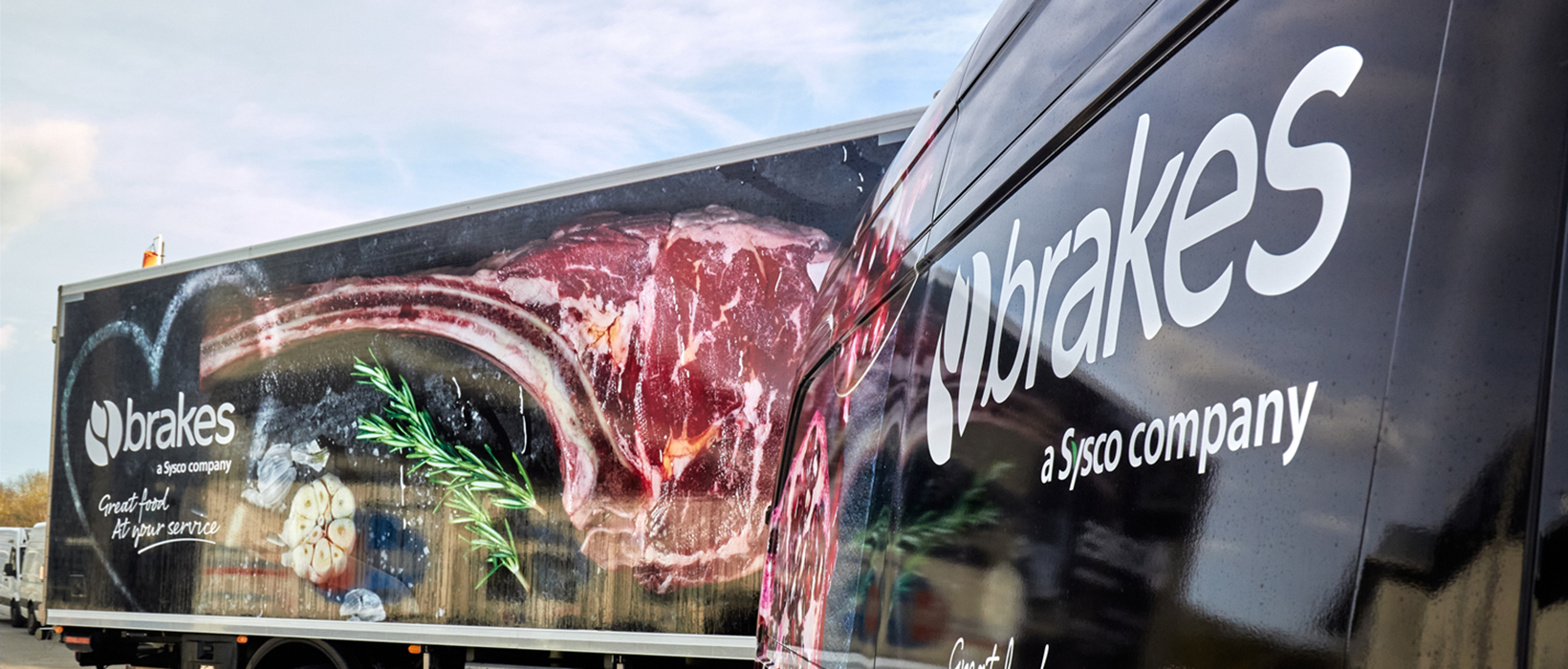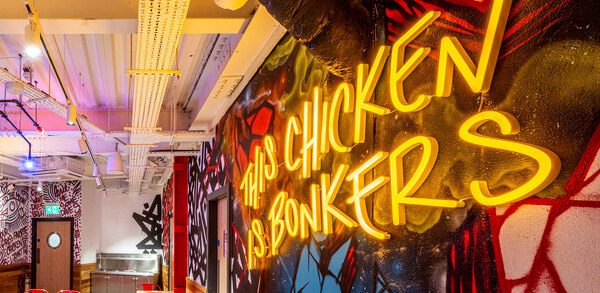Chain reaction: how suppliers are relinking the supply chain
As we begin to navigate out of lockdown, wholesalers, suppliers and producers will be figuring out how to restart their supply chains and reignite their operator relationships. Lisa Jenkins reports
##Stuart Smith, UK merchandising director, Brakes
What impact did the lockdown have on the supply chain?
It was unprecedented in speed and extent; as a result, many products that had been destined for pubs and restaurants suddenly had no ready market. It was pretty much a simultaneous and universal hard stop in hospitality, with reduced requirements from caterers.
We worked with several different organisations, including food manufacturers and charities such as Fareshare, to ensure that shorter-life products were not wasted.
However, the demand from some sectors grew considerably, such as care and health, where extra catering has been required.
Have you been able to plug any financial gaps by working with other routes to customers?
We have worked with retailers to help them meet the surge in demand as out-of-home eating requirements ceased. We found a market in collaboration with retailers and convenience groups for larger-sized catering packs for family meals. It certainly has been interesting to see Brakes-branded products on gondola ends in supermarkets!
We also launched our own direct-to-consumer services, including collection or delivery from 10 of our depots. The reaction has been very positive.
We also reacted quickly to extend and promote our hygiene products. This meant we could rapidly move to supporting customers who had started takeaway services.
How has your organisation worked with farmers and food producers to maintain the supply to sectors that have needed it most during the crisis?
We have great relationships back to primary producers and processors through the supply chain. But because we are still supplying many operations in the vulnerable care sector, including care homes and the NHS, our supply chains remain fully operational.
Have any of your suppliers gone out of business?
For many suppliers, where they have a mix of retail and foodservice business, we have seen them divert their supplies into retail.
For those who work solely in foodservice, we have some cases of businesses temporarily closing. Where we can, we have been keeping in touch, as they are valued partners whose brilliant products are loved by our customers, so we will want to work with them again when the lockdown is over.

Have you supported any of your suppliers financially to ensure long-term supply after the crisis?
For most of our suppliers, we have long-term relationships and have been working with them throughout the crisis and supporting them as much as we can.
What is your strategy for restarting the supply chain into hospitality?
We have a robust supply chain and a modern infrastructure, which means that we will be able to move quickly once lockdown ends.
As a business, we are planning for various scenarios and are confident that working with the government and our trade associations, we will be able to help the hospitality sector manage an end to the lockdown.
There are many unknowns to manage, such as the speed and sequencing of when and where the market will reopen. It will be challenging for everyone.
How long do you estimate it will take to have the supply chain fully operational once again?
That depends on what the end of the lockdown looks like and how we exit it. The biggest challenge we face is uncertainty and while, as a business, we are looking at a multitude of scenarios, until the government decides what the end of lockdown means, it is difficult to speculate.
The Scottish government has already said, for example, that bans on social gatherings in pubs are likely to be in place for some time.
What messages are you hearing from your suppliers across farming and food production?
There are a mix of messages, with many companies coping well, while others are concerned. It’s no secret that there are concerns over migrant labour for harvesting, as well as the uncertainty over the length of the lockdown that is causing problems with how much to plant.
Overall, for the most part, there is a unity of purpose to keep the nation fed through this crisis and an understanding that we must work together to ensure that it happens.
Are there certain products that operators may struggle to get?
Many of the challenges in retail are also reflected in foodservice, as these are impacting the entire industry – for example, with rice, pasta and some canned products. But generally, these supply issues have eased somewhat in the past few weeks.
Do you anticipate changes in the products operators will be looking for once the lockdown has lifted?
It is too early to speculate on this – and much will depend on how consumers react to the end of the lockdown. Will they rush out, or are social distancing habits going to remain? It may be that operators move towards frozen product to avoid waste while demand is uncertain, or limit menus for the same reason. But we are discussing options with customers and will continue to do so over the coming weeks so that we can support them when business returns.
Do you think the credit-based business model will change following this crisis?
We will work with customers to decide on the most appropriate commercial arrangement that suits both businesses.
Have industry bodies supported you?
I think that many of the generic organisations we work with have shown their true value during this crisis. It is at times like this when they can show their worth, representing us at a government level, but also bringing the industry closer to work together in the national interest. From what I have seen, they have been doing a tremendous job representing the industry.
Was the government’s response to the crisis appropriate?
The lockdown is clearly very difficult for many businesses, but we believe that it was the right course of action to protect the public and the NHS. I’m sure many businesses will be glad of some of the support measures that the government has made available, for example with the Coronavirus Job Retention Scheme, but the government may need to consider some more extraordinary measures for the hospitality sector, which has endured, and may continue to endure, a much tougher time than many other sectors. We hope that the government will support our hospitality businesses in need.
How have you worked with other organisations to the benefit of all?
We’ve been working in collaboration with Bidfood and the UK government to deliver care packages to the clinically vulnerable. We’ve delivered hundreds of thousands of care boxes, containing food and other essentials, to those in most need. The doorstep response has been phenomenal – real emotion and relief from the recipients – so we are very proud and humbled to be helping our local communities and those in need so directly.
We’ve also been active in supporting staff across the care sector, creating pop-ups to supply the products that staff need most. This initiative has been very well received, for its convenience and because it removes the need to visit supermarkets.
We’ve similarly been working with a charity called Help for NHS Heroes, which has launched in a small number of hospitals and is growing very quickly. The initiative offers NHS staff the opportunity to purchase groceries without having to go to the supermarkets during unsociable hours.
Mushtaque Ahmed, chief operating officer, JJ Foodservice

What impact did the sudden lockdown have on the supply chain?
When the government announced that restaurants and pubs needed to close, we lost a huge amount of business overnight, particularly from operators that didn’t already have a safe takeaway system in place. However, at the same time as losing our core customers, we quickly gained a new type – the general public. When consumers couldn’t get what they needed from the supermarkets, they started coming to us. And when restaurants were told to close, even more of the public came to us. We quickly had people lining up outside our gates.
Have you been able to plug any financial gaps by working with other routes to customers?
In the past three weeks we have acquired more than 35,000 new home customers and we have launched a household essentials range, including smaller pack sizes, to support them. For Londoners, we are offering a same-day delivery service.
How has your organisation worked with farmers and food producers during the crisis to maintain supply to sectors that have needed it?
Our purchasing department have been working closely with suppliers to maintain a good supply of products and to broaden our range of important items, including soaps and hand sanitisers, toilet roll, eggs, flour and other important household essentials.
We’ve been selling record amounts of eggs and flour over the past few weeks – many self-isolating families are clearly doing more baking.
Have any of your suppliers gone out of business?
Many of the key fish and seafood suppliers have stopped operating over the past few weeks. This has led to a big increase in fish and chip shops buying our products.
Do you anticipate changes in the products restaurants will be looking for once the lockdown has lifted? We may see changes in fish and chip shop menus. Impacts on costs and budgets could mean that menus may become more varied – we may see more cost-effective proteins such as chicken, as well as veggie and vegan options, particularly as the cost of fish continues to fluctuate.
Our numbers are showing us that operators are reopening – our sales to fish and chip shops for the past week have been up by more than 50% compared with last year. But the future of fish and chips could look very different to what it was pre-crisis.

Have your industry bodies supported you during the crisis?
The Federation of Wholesale Distributors has been brilliant – it launched an online platform called Local Food Drops that lists food suppliers serving the public. We received lots of visits to our website from there. The National Federation of Fish Friers has also been incredibly proactive. Chairperson Andrew Crook has been updating members daily on changing legislation and what it means for businesses like ours and our customers.




















